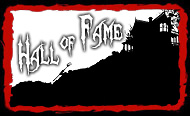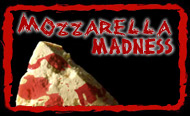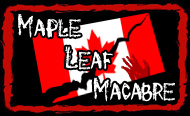
The Hills Have Eyes (1977)
Studio: Arrow Video
Release date: October 11th, 2016
Reviewed by: Brett Gallman (@brettgallman)
The movie:
When the end of World War II ushered the world into the atomic age, it didn’t take long for the movies to directly reflect the fear and anxiety surrounding this newfound fear of oblivion. Godzilla served as the most famous parable from this era, his fiery atomic breath eventually serving to melt away the floodgates for other giant monsters and mutants to loom over audiences. The message was clear: by indulging in such abominable science, mankind had invited nature to exact its own pound of flesh.
By the time Wes Craven conceived The Hills Have Eyes in the late 70s, Hollywood had largely moved away from those monster movies that had become the stuff of light-hearted matinee fare; moving into their place were more grounded, everyday horrors: the psycho running a motel off the beaten path, the cannibal family living in the desolate corners of Texas, the band of maniacal prison escapees pushing an ordinary American family to the brink of violence. And yet, as The Hills Have Eyes reveals, that nuclear shadow still loomed large, even if Craven did cast its pall on a smaller, more intimate scope by imagining a clan of irradiated mutants terrorizing a family hailing from America’s heartland.
It’s a nuclear family vs. an actual nuclear family, if you will. The former are the Carters, hailing from Cleveland but travelling for Los Angeles, the land of “movie stars and fancy cars.” Along the way, patriarch Bob (Russ Grieve) takes a detour to check out a silver mine that he and his wife received as an anniversary gift. It’s an ill-fated decision since this desolate, nigh-abandoned stretch of desert is home to a family of inbred maniacs that prey upon any unfortunate souls that happen to pass through. Predictably, the Carters end up careening off the road, leaving them stranded in the middle of nowhere, completely at the mercy of Papa Jupiter (James Whitworth) and his cutthroat clan.
At its core, The Hills Have Eyes exploits primal, timeless fears: isolation, helplessness, and unseen predators. While the film is shocking for its notable and cringe-worthy outbursts of violence, it’s arguably never scarier than it is in the early-going, when Craven highlights the dreadful eeriness of the titular hills. Sundown becomes particularly ominous, as sinister blue moonlight spills over the landscape, casting the proceedings in an almost preternatural glow. Animals howl in the distance, as vast miles of endless desert stretch out before the suddenly scattered Carters: Bob heads off to the filling station the family passed by up the road, while his son-in-law Doug (Martin Speer) seeks out a nearby military base. Left behind is youngest son Bobby (Robert Houston), entrusted with a gun in his hand to look out for his mother (Virginia Vincent), two sisters (Susan Lanier & Dee Wallace), and his infant niece.
The Hills Have Eyes is a great, unsettling film before Craven even flexes the violent cinematic muscles that so forcefully announced is presence in Last House on the Left. Once he indulges them once again here, Hills somehow becomes more ghastly, as the director is absolutely merciless in his treatment of the Carters. No one is off limits, including the family dogs, whose names (Beauty and the Beast) conjure up memories of fairy tales that are far removed from the grim reality here. When the infant daughter is abducted, the peril is believable: The Hills Have Eyes is that disturbing, its fits of violence leaving a trail of charred, broken, and bullet-ridden corpses on both sides. The tit-for-tat exchanges—which climax with the line of savagery between both families having been completely blurred—recalls one of the central themes of Last House, as you’re left with the staggering image of an American family having been ripped apart physically and morally. The film’s abrupt ending—a red-stained freeze frame on Doug’s manic, bewildered face—captures much of Craven’s thesis here.
But there’s something else just as interesting rumbling beneath the surface. If Last House is an elegy for the flower power generation, then The Hills Have Eyes shovels more dirt over the grave. They’re often raw, graceless heaves, though they’re driven by a righteous fury and distrust of institutions. Craven’s musings are somehow not subtle yet also not completely obtrusive, as he lays out his preoccupations with a heavy-handed backstory involving Jupiter’s clan. Born near a nuclear testing site, Jupiter was born mutated and deformed, the product of an intrusive and uncaring government that left he and his kin to fend for themselves—these are the children of the atom, warped, malformed, inhuman creatures a far cry from the giant monsters and bugs that swarmed onto theater screens two decades earlier.
They aren’t the only victims of government meddling, though: the Carters pointedly are driven off the road by a low-flying jet, its roaring, squealing engines serving as a prelude of the cacophony of grunts, screams, and savage yawps to come. Furthermore, the air force base Doug seeks out serves to be rather ineffectual outside of some supplies that go unused. “It’s no wonder we’re paying higher taxes when they’re throwing this stuff away,” he quips, reflecting the era’s mounted distrust of the American government. With both Watergate and Vietnam looming just in the distance of the rearview mirror, it’s not surprising that The Hills Have Eyes is marked by a streak of distrust. Of course the government would conduct unsafe nuclear bomb testing and completely abandon the victims, effectively turning a blind eye even as they carve a blood-stained path through the same desert they continue to fly jets over.
In many ways, then, The Hills Have Eyes is a purely American nightmare, one that sees a suburban family torn apart by the forgotten dregs of society. But there’s something even more ideologically frightening beneath the obvious: one of the daughters rolls her eyes at her mom’s insistence that they pray, while another is chided for using the foul language she never uttered until she moved to big, bad New York City. They cling to their guns, and Bob crudely recalls the “n—ggers” and “hillbillies” he encountered before retiring from the police force. It’s an intriguing character wrinkle, one that introduces another dimension to the film’s political leanings. Craven would more obviously skewer the religious right and the moral majority years later in People Under the Stairs, but these criticisms are faintly detectable here.
The Carters aren’t exactly wholesome (in fact, couldn’t you see Bob being a goddamn Trump voter in 2016?) themselves—there’s a certain haughtiness and cocksureness surrounding them that tilts their encounter with the cannibal family on its head, if only so slightly. What if they don’t have all that far to fall in order to meet Papa Jupiter’s clan on their level? What if realizing you’re not too far removed from this forgotten human waste is the ultimate nightmare of all?
It’s fair to say that this isn’t Craven’s most articulate film—it’s raw, slightly melodramatic, and grungy, though I’m not so sure it should ever be otherwise (this might be the only reason Aja’s too-slick remake remains worthy yet slightly inferior). Abundantly clear is the primal, remorseless howl with which it screeches across the screen: it would be seven years before Craven haunted Elm Street, but The Hills Have Eyes is some kind of nightmare in its own right, a tableau of freaks and twisted, inside-out family values. This is what the world looks like in the shadow of nuclear war; forget giant mutants or strange beasts—oblivion is only one wrong turn away, especially when it leads one down an astray, bombed out, and forgotten path.
The disc:
Five years after a fairly disappointing Blu-ray release from Image Entertainment, The Hills Have Eyes has been rightfully rescued and restored on the high-def format by Arrow Video. The most pressing issue from that previous disc has been addressed, as a brand new 4K transfer has replaced its poor, low-grade image. Furthermore, the film is available to view with both the original and an alternate ending (which, as it turns out, was wisely cut—it features an awful, tone-deaf coda the film doesn’t earn at all).
Tons of supplements have been newly produced and ported over from previous releases. Among the former are two new audio commentaries: one sports Michael Berryman, Julius Blythe, Susan Lanier, and Martin Speer, while the other boasts academic and critic Michael J. Koven. Never-before-seen outtakes, plus new interviews with composer Don Peake and Speer join new, limited edition booklet, post cards, and a reversible fold-out poster, as content exclusive to this limited edition release.
“Looking Back at The Hills Have Eyes” is a holdover from the old Anchor Bay release, but it’s still rather definitive, as it features thoughts from Craven and the rest of the cast and crew (many of whom indeed did threaten to walk if Craven actually decided to kill that baby, it turns out). Craven and Peter Locke also appear on an older commentary from that same release. Your typical assortment of trailers, TV spots, and image galleries also appear alongside the original screenplay. It goes without saying that this is the ultimate release of The Hills Have Eyes that you can display proudly beside your Blu-ray copy of the 1985 sequel, which inexplicably already has a more satisfying release. comments powered by Disqus Ratings:








